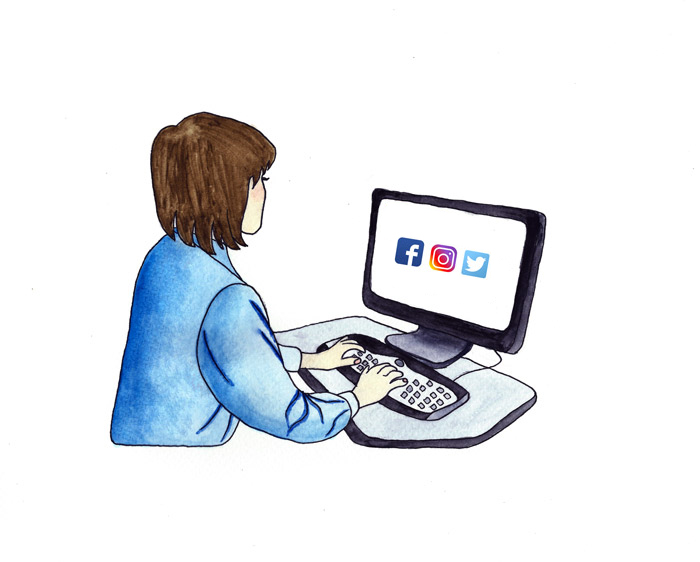Recent developments in the field of artificial intelligence (AI) are revolutionizing mental health care. A team of researchers from the University of Ottawa, the University of Alberta, and the University of Montpellier in France are developing an AI software that scans social media platforms and flags posts that can suggest mental illness. Diana Inkpen, professor at the University of Ottawa School of Electrical Engineering and Computer Science, is spearheading the project.
Inkpen explained that as the software receives new data, it becomes more adept at gathering information and making predictions.
“Artificial intelligence systems can learn from data,” Inkpen wrote in an email to The McGill Tribune. “For example, if the AI system is provided with many examples of texts posted on social media that reflect signs of mental illness, the system can learn a predictive model. Detecting strong and persistent negative emotions can be a sign of mental illness or other behavioral problems. We are looking for the best methods to develop predictive models for different kinds of issues—depression, [suicidal] intentions, self-harm, [and] cyberbullying.”
With Facebook’s recent creation of its first Canadian AI research laboratory in Montreal, the importance of AI technologies is unquestionable. Inkpen remains optimistic about the future of artificial intelligence and its role in mental health care. She believes the software she and her team developed can provide a beneficial diagnostic tool for healthcare professionals.
“AI [systems] are and can be used even more to help people,” Inkpen wrote. “Signs of mental illness can be detected early and help can be offered in order to prevent these problems before they become serious. Another scenario is for doctors to use AI systems to monitor their patients’ social media accounts, with their consent. In this way, doctors would base their diagnostics on the findings of the AI systems and on their own knowledge and intuition in the same time.”
Despite the available resources, the stigma surrounding mental health keeps many of those affected from seeking professional help. Robert Whitley, principal investigator of the Social Psychiatry Research and Interest Group (SPRING) and assistant professor in the Department of Psychiatry at McGill, researches that stigma. Most notably, his work deals with barriers to facilitators of healthcare. According to Whitley, the fear of judgement and ridicule prevents people with mental illnesses from seeing a clinician.
The onset of these mental illnesses may be due to the influence of social media. Numerous studies over the years have shown that social media use may be associated with mental health issues. In accordance with a 2015 study, Whitley states that there is a correlation between depression and social media use: Those who spent more time online had a higher risk of depression.
“Sadly, a lot of social media provokes feelings of envy and the famous phrase the [young] generation coined the ‘fear of missing out.’” Whitley said. “People on social media are not a true representation of reality. It’s a refracted representation whereby people present the highlights of their lives. My hope is that people like me will put this information out there and then people, young people especially, will learn about it and minimize their time on social media and maximize things that are much [healthier] such as playing sports, socializing, [or] reading.”
As the influence of social media continues to increase, it is imperative that signs of mental illness be detected before they become serious. Although advances in AI systems cannot replace an actual clinician, software such as the one designed by Inkpen and her team demonstrate great diagnostic potential.









Thank you very much for this blog provided was very helpful information and well appreciated
healthcare System